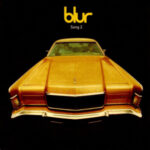 In the pantheon of 1980s music, Talk Talk occupies a unique and transformative space. What began as a synth-pop group aligned with the New Romantic movement evolved into one of the most innovative and genre-defying bands of their era. From catchy early hits like “It’s My Life” and “Talk Talk” to the avant-garde masterpieces of Spirit of Eden and Laughing Stock, Talk Talk transcended trends and commercial expectations to create a lasting musical legacy.
In the pantheon of 1980s music, Talk Talk occupies a unique and transformative space. What began as a synth-pop group aligned with the New Romantic movement evolved into one of the most innovative and genre-defying bands of their era. From catchy early hits like “It’s My Life” and “Talk Talk” to the avant-garde masterpieces of Spirit of Eden and Laughing Stock, Talk Talk transcended trends and commercial expectations to create a lasting musical legacy.
This article explores the fascinating journey of Talk Talk, their artistic evolution, and their enduring influence on modern music.
The Formation of Talk Talk
Talk Talk was formed in 1981 in London, England, by vocalist and primary songwriter Mark Hollis, drummer Lee Harris, bassist Paul Webb, and keyboardist Simon Brenner. The band’s early work fit comfortably into the synth-driven sound of the time, drawing comparisons to contemporaries like Duran Duran, with whom they briefly shared a label, EMI.
The group’s name, inspired by one of Hollis’s earlier compositions, reflected their concise, thought-provoking lyrical style. Signed by EMI in 1981, the band quickly gained attention for their infectious melodies, polished production, and Hollis’s distinctive, emotive voice.
The Early Years: Synth-Pop Success
Talk Talk’s debut album, The Party’s Over (1982), was firmly rooted in the synth-pop aesthetic of the early 80s. Produced by Colin Thurston, who had worked with Duran Duran and David Bowie, the album featured tightly crafted pop songs with a slick electronic sheen.
Tracks like “Talk Talk” and “Today” showcased Hollis’s knack for writing catchy hooks while hinting at the depth and introspection that would define the band’s later work. The album performed well in Europe, establishing Talk Talk as a promising new act.
Their sophomore album, It’s My Life (1984), marked a significant step forward. With Tim Friese-Greene joining as producer and unofficial band member, the group began to experiment with richer textures and more sophisticated arrangements. The title track, along with “Such a Shame,” became international hits, propelling the band into the spotlight.
However, despite their growing success, Talk Talk resisted the pressures of the mainstream pop industry, setting the stage for a bold creative shift.
The Artistic Evolution: The Colour of Spring
By 1986, Talk Talk had begun to shed their synth-pop image. Their third album, The Colour of Spring, represented a turning point, blending organic instrumentation with ambient textures and complex song structures.
Featuring hits like “Life’s What You Make It” and “Living in Another World,” the album achieved both critical and commercial success. The lush production, intricate arrangements, and Hollis’s introspective lyrics signaled a maturing band unafraid to push boundaries.
The Colour of Spring was a bridge between Talk Talk’s pop beginnings and the groundbreaking experimental work that would follow. Its success gave the band the freedom to take their music in a radically different direction.
A Bold Departure: Spirit of Eden
Released in 1988, Spirit of Eden was a dramatic departure from anything the band—or their peers—had ever created. Eschewing conventional song structures and pop formulas, the album was a meditative, genre-defying masterpiece. Drawing on jazz, classical, and ambient influences, Spirit of Eden created an atmospheric soundscape that defied easy categorization.
The recording process was painstaking and unconventional. Hollis and Friese-Greene assembled a group of skilled session musicians and encouraged improvisation, later editing and layering the performances to create the final tracks.
Songs like “The Rainbow,” “Eden,” and “I Believe in You” unfolded slowly, demanding the listener’s full attention. The sparse yet intricate arrangements, combined with Hollis’s haunting vocals, created an emotional and spiritual resonance.
While Spirit of Eden baffled EMI and alienated some fans, it earned widespread critical acclaim and has since been recognized as a landmark album. Its influence can be felt in the work of artists like Radiohead, Sigur Rós, and Bon Iver.
The Final Masterpiece: Laughing Stock
Talk Talk’s final studio album, Laughing Stock (1991), continued the experimental approach of Spirit of Eden while pushing the boundaries even further. Released on the jazz label Verve Records, the album was even more abstract and uncompromising.
Tracks like “Ascension Day” and “After the Flood” featured extended instrumental passages, minimalist arrangements, and an almost mystical quality. Hollis’s lyrics, often cryptic and poetic, explored themes of faith, loss, and redemption.
Despite its challenging nature, Laughing Stock was hailed as a triumph by critics. It cemented Talk Talk’s reputation as pioneers of post-rock, a genre that emerged in the 1990s and drew heavily on their innovations.
After Laughing Stock, Mark Hollis disbanded Talk Talk, stating that he had achieved everything he wanted artistically.
Mark Hollis’s Solo Career
In 1998, Mark Hollis released a self-titled solo album that continued the minimalist and introspective style of his later work with Talk Talk. Featuring sparse arrangements and acoustic instrumentation, the album was a quiet, meditative farewell to the music industry.
Hollis then retired from public life, focusing on his family and maintaining a low profile until his death in 2019. His absence from the spotlight only added to the mystique of his work, solidifying his reputation as a visionary artist.
Legacy and Influence
Talk Talk’s evolution from synth-pop to avant-garde innovators is one of the most remarkable transformations in music history. Their willingness to defy industry expectations and follow their artistic instincts has inspired countless musicians.
Influence on Post-Rock
Talk Talk’s later albums, particularly Spirit of Eden and Laughing Stock, are often cited as foundational works in the post-rock genre. Bands like Radiohead, Bark Psychosis, and Mogwai have acknowledged their debt to Talk Talk’s atmospheric and experimental approach.
Resurgence of Interest
In recent years, Talk Talk’s music has experienced a resurgence in popularity. Their albums have been reissued on vinyl, and younger audiences have discovered their work through streaming platforms. Documentaries, tribute concerts, and retrospectives have further cemented their place in music history.
Conclusion
Talk Talk’s journey from 80s synth-pop stars to avant-garde pioneers is a testament to the transformative power of artistic vision. With their groundbreaking music, they challenged the conventions of the music industry and left an indelible mark on generations of artists and listeners.
Though their active years were relatively brief, Talk Talk’s legacy continues to resonate, reminding us of the beauty and power of creativity unbound by commercial constraints. Whether through the catchy anthems of their early years or the transcendent soundscapes of their later work, Talk Talk remains one of the most innovative and influential bands of all time.
This post has already been read 263 times!









